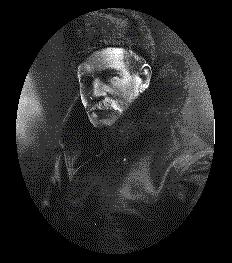I took this into account while working on my novel on the Durant family. Not only for Durant family members, but one character in particular, Poultney Bigelow. He was a friend of the Durants, and from my research I uncovered that he and Ella Durant maintained a friendship well into their 80s. I speculate from their letters to each other that they were, in their early years, at one time in love with each other.
But as I dug into Poultney's life I was disappointed to learn he was marked by some historians as both an anti-Semite and racist. Indeed, he was forced to resign his position as Professor of Imperialism at Boston University after his writings on Jews and race as well as his scathing criticism of political corruption during the Panama Canal Project were deemed too controversial.
When I mentioned to a good friend that I was torn about how to portray his character as I found myself taken aback by his bigotry, he suggested most people during his time and with Poultney's socioeconomic standing would appear to us today to be bigots.
Was I taking my own views on bigotry for granted?
And then there was an article in the Toledo Blade (1926) I found on the Bigelow family website about his lawsuit against HG Wells for public slander when Wells, in his account of a dinner party conversation held in Countess Russell's home in London, claimed publicly that Bigelow had the audacity to ask him about his sales income from writing, and then went on to say that he believed Poultney to be ill-mannered.
What to do with this piece of information? It was after all an event that happens well after my current story ends.
I am using it, like all of the research I have found, some flattering, some unflattering, about my characters. Ella, my favorite of all, disappointed me when I found an article she had written to the New York Times (1900) titled: 'The White Woman's Burden' - a diatribe against the maids in New York trying to unionize - again written in a time well beyond my current novel.
It helps, I suppose that two of my main characters wrote for the public. These peeks into the thinking of my characters through their own writings, helps me to weave the tale in such a way as to show that all of my characters, especially those that are most interesting to write about, have human flaws like the rest of us. It's just a matter of perspective.

 RSS Feed
RSS Feed
